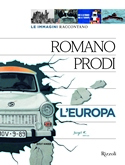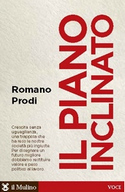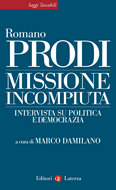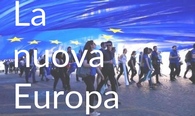Special Envoy Romano Prodi’s briefing to the Security Council
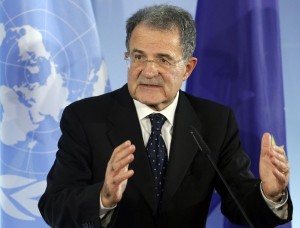 Special Envoy Romano Prodi’s briefing to the Security Council
Special Envoy Romano Prodi’s briefing to the Security Council
New York, 10 December 2012
Mr. President,
I am grateful for the opportunity to take the floor in front of the Security Council as Special Envoy of the Secretary-General for the Sahel. As the Secretary-General has just said, the Sahel region is facing a complex and multifaceted crisis. It is a crisis which may spread if not tackled in time.
When I was asked by the Secretary-General to assume the responsibility of being his Special Envoy for the Sahel, I was both honored and frightened. Honored for the trust and frightened by the challenge.
This is a challenge that we can win only if we are united, working for the same purpose.
Our purpose is to organize a worldwide platform aimed at putting in action an efficient network of humanitarian aid and a common strategy for the development of the Sahel.
However, nothing can be done in this respect without restoring the unity of Mali in a peaceful Sahel, starting immediately a process that will allow transparent and free democratic elections as soon as possible.
It is clear to every one of us that in order to achieve these difficult but indispensable goals we need common action against any form of terrorism and illegal behavior.
After two months of my mandate, I see that there is a common will in order to get to these goals and that all of us share the necessity to avoid the spread of terrorism, now probably the most dangerous perspective of the world community.
We are here in order to translate this common shared view into common action.
This is possible because we can count on the strong cooperation of all within the United Nations, all the Members of the Security Council, the African Union, ECOWAS, the European Union and all the main actors of World Politics.
The mandate of the Secretary General was very clear when he summed up to me the scope of my mission:
“coordinate the efforts of the many who work already, very well, along four lines, complex, different, but strictly interconnected :
- peace and security,
- political stability,
- humanitarian aid,
- long term development.”
He asked me to prepare an integrated strategy whereby the international community may work effectively together in helping the countries of the Sahel achieve these goals.
It must be clear that this Integrated Strategy cannot be the occasion only to write an elegant paper.
It is a set of actions tailored to face problems dynamically evolving, and aimed to:
- bring urgent relief to humanitarian tragedies,
- generate new trust in the Sahel people,
- attract international attention in view of raising financial and political support.
KEY TO THE STRATEGY IS THE TIGHT COOPERATION AMONG ALL THOSE WHO ARE FACING THE SAHEL CHALLENGE, wherever they come from.
This is why, in the first weeks of my mandate, I had extensive meetings with the leaders of the countries and the African Institutions more involved in this process: in Bamako, Addis Ababa, Cairo, Algeria, Morocco. And then in the EU, US, France, UK, Germany, and Italy. Then I called for a meeting in Rome at FAO (so kindly and effectively hosting and supporting our activities), all the mediators, special envoys and senior UN officials working on the Sahel.
The purpose was to share our views on the evolving situation in the Sahel and deepen the means by which the special envoys and mediators could best coordinate their work.
The result has been extremely positive and both coordination and Integration have been perceived not as an option but as a must.
AFTER THE ROME MEETING I FEEL WE REALLY ARE A LARGE, STRONG INTERNATIONAL COOPERATIVE TEAM.
Next week I will travel to the region for the third time since my appointment. SRSG Djinnit and I will travel together to meet key actors to discuss security, political, humanitarian and development issues facing the Governments of the region.
Clearly our interlocutors cannot be only politicians: we have in front of us the whole society and we shall therefore open a dialogue with all its components: intellectuals, religious people, women, businessmen, representatives of tribes.
WE MUST LISTEN AND TALK TO ALL OF THEM.
Challenges faced by the Sahelian communities include environmental degradation, youth unemployment, water management, weak institutions, human trafficking, organized crime, and terrorism – these are just some of the immediate issues we must address.
To be operational and effective in these fields substantial resources are needed: this is another difficult challenge, but I have been struck by the voluntary offer of quite a few countries to move forward quickly in order to meet the needs of Sahel emergencies.
Resources in this field are never enough and I am now trying to have on board the highest number of countries, international institutions and private donors. It was widely accepted that the first and foremost focus will deal with the people in need, particularly those affected by the crisis and in dire necessity of assistance.
A MEETING OF ALL COUNTRIES AND INSTITUTIONS AVAILABLE TO SUPPORT AN URGENT ACTION OF HUMANITARIAN AID WILL BE ORGANIZED VERY SOON in order to mobilize extraordinary support for the crisis.
A multi-donor Trust Fund specific to Sahel is also in my mind an urgent must.
Concerning long term development,
I INTEND TO RELY HEAVILY ON PEOPLE WHO HAVE INVESTED CONSIDERABLE AMOUNT OF TIME AND BRAIN studying the region and the challenges faced by its people.
For this purpose we have received generous offers of the best specialists of the world, from Brussels to Washington, to the top American, European and Chinese Universities and Research Institutions.
We will do our best to benefit from their offers of support.
Of course, all such efforts would also involve governments, civil societies, regional partners, non-governmental organizations as well as financial institutions. Long term peace can only be sustained through development.
Mr. President,
I intend exert all possible efforts to mobilize what is needed. I envisage resource mobilization to take place in two phases. In the immediate and short term, resources would be required to strengthen the ongoing efforts and current mechanisms to alleviate the immediate sufferings of the people. The second phase would involve resources required to bring about some fundamental and structural improvement in the region to drive it towards long term recovery and development.
I will count on grants, loans, direct investments, from Multilateral Institutions (WB, ADB, UNDP,…) and national Funds from the Gulf to China. In both phases, I will heavily rely on the support of the Security Council and the international community.
THE RESOURCES WE MOBILIZE WILL NEVER SUBSTITUTE THE NEED FOR GOOD GOVERNANCE
We must, therefore, also place the onus on the shoulders of the Governments of the region and help them to take these matters in their own hands.
For this reason, the African Union Special Envoy for the Sahel and Mali, President Pierre Buyoya, and I plan to hold a meeting in the near future of all Sahelian countries to talk with them about what they need from a strategy on the Sahel.
All this can be implemented only if there will be in the future a common view among Malian leaders.
We have to make every effort to identify and support one and only one decision center inside Mali. This is a vital point even if not easy to achieve.
Strong leadership is needed in order to negotiate with the north.
As a second step we must help the opening of a political dialogue with the acceptable interlocutors in the north.
For this purpose we must act as important and indispensable facilitators, leaving to the Malians the full responsibility of the process.
Dealing with the entire Sahel we shall also facilitate the cooperation between Mali and it neighbor countries.
It is of course our duty to work in order to put an end to any act of violence.
As we easily understand, the whole long term Sahel agenda can be implemented
ONLY IF WE ACHIEVE THE TWO MAIN GOALS OF THE MALI AGENDA:
- -THE POLITICAL UNION
- -THE DEMOCRATIC EVOLUTION OF THE COUNTRY
On the military action:
We must prepare it, with the necessary instruments (otherwise we are not credible even in our effort for peace) but we must make every effort to get to our goals (unity, democracy, humanitarian help and development) through peaceful means and negotiations. An extended military action brings always as a consequence not only a humanitarian tragedy but enormous financial costs and an extended period of economic crisis.
As far as timing is concerned, I have simply taken note from all the experts I met, that many months are needed to gather the strength requested for a credible full range campaign.
On elections: WE MUST HAVE THEM AS SOON AS POSSIBLE and we should start immediately the necessary technical preparation.
My point, from my previous experiences, is that we must prepare them well, guarantee a free and transparent campaign and simply avoid that an election in a divided country can be interpreted as a seal to the division.
Anyway, if we want to help the goal of a united and peaceful country we have to understand that the tensions between south and north are not a problem of today but are decades old.
A platform of decentralization is therefore needed. A platform that, preserving the unity of Mali, will make possible a credible change in the relations between North and South.
How much decentralization is needed, will be decided by the direct Malian negotiators. I only state that only a strong engagement of the international community may guarantee a positive outcome of this effort.
Mr. President,
The situation in Mali presents a challenge which can potentially affect the entire region.
Our efforts must ensure that what has happened in Mali does not spread to the whole Sahel.
Accordingly, I would like to echo the views of the Secretary-General that any military effort in Mali must be undertaken after careful analysis and thorough preparation and that these efforts should be part of an agreed political process that tackles the roots of the conflict.
Mr. President,
While the road ahead looks full of major challenges, I remain optimistic that with the right tools and support in resources and organization, these challenges can be overcome.
A failure should carry dramatic consequences not just for the region but for the world at large.
People of the Sahel carry many hopes and aspirations. I firmly believe that we must help them to accomplish these hopes and aspirations, for their sake and for the sake of their future generations.
Thank you.
Romano Prodi
Special Envoy of the Secretary-General for the Sahel








